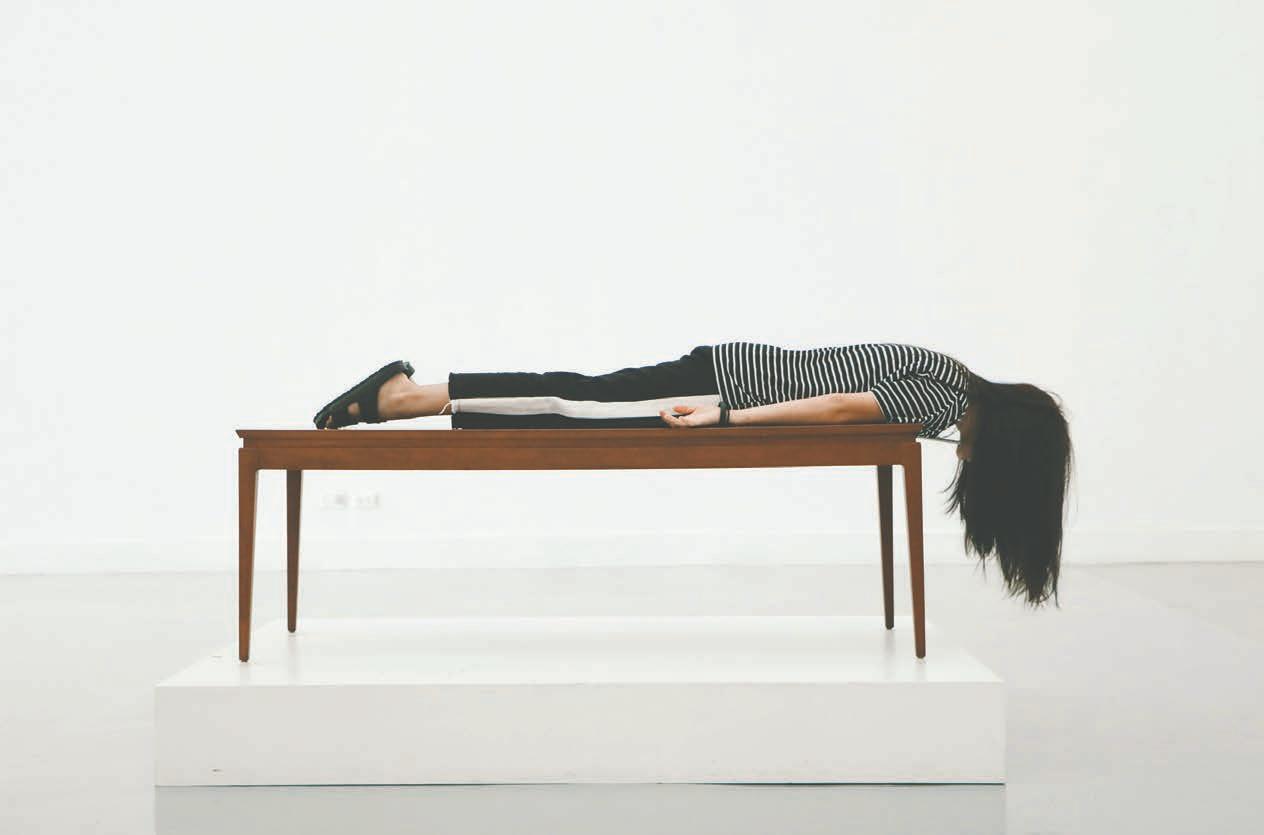
6 minute read
Opinion: Just Breathe
How to Reduce Anxiety in the Age of COVID
Free Guided Imagery Apps and Websites
Advertisement
Insight Timer is very popular, with thousands of options, and works on iOS, Android, and web browsers. This app offers help-you-sleep recordings, yoga sessions, nature sounds, and even 10-day courses on subjects like stress reduction and sleeping better.
Smiling Mind is run by a non-profit and offers recordings as short as 2 minutes. It has a great selection for children and young people. For iOS, Android, and web.
UCLA Mindful was created by University of California researchers based on the science of mindfulness. It offers a good “getting started” section and has recordings in English and Spanish. For iOS and Android.
The Healthy Minds Program was developed by a neuroscientist at the University of Wisconsin. The app helps you work on mental focus, immune health, and reducing stress, as well as personal qualities like resilience and compassion. This app is more thinking-based than meditation-based.
MyLife Meditation customizes sessions to how you feel right now. It has recordings for specific purposes, such as breathing, mindfulness, and body awareness. It’s for people more open to meditation. For iOS and Android.
BY PATRICIA SANDERS
Idon’t mean to stress you out, but there’s a second pandemic going on along with the COVID-19 pandemic. It’s probably affecting everyone, to one degree or another.
It’s a pandemic of stress and anxiety.
If you’re experiencing trouble concentrating, sleep problems, irritability or nervousness, or constant worrying, or if you have little interest in pleasure or in doing things, or are feeling down or depressed, you’re far from alone.
Most people are experiencing these symptoms during the pandemic.
Trouble concentrating is the most common difficulty: Before the pandemic, about one in ten people reported trouble concentrating – or “brain fog” – but during the pandemic, it’s been three out of four people. Trouble concentrating has become much more common among young people, and is probably interfering with their schoolwork.
Increases in anxiety and depression
Before the pandemic struck, anxiety and depression were affecting about 11% of people – a little more than one in ten. By June 2020 – a few months into the pandemic – that number had skyrocketed to 42%.
For working adults, in particular, the number reporting anxiety tripled during the pandemic – from about one in four to about three in four people. Depression, sleep problems, and irritability have all more than doubled in prevalence. Low energy, loss of appetite, and feeling bad about yourself have also increased.
These symptoms seem to be caused mostly by isolation, fear of infection, and the tensions of being in lockdown. On top of these stressors, people are also experiencing economic worries, uncertainty (including constant changes in health guidance), and the pain of watching other people suffering.
The symptoms are worst for young people.
Close to 10% of young people in the United States are experiencing severe depression. Thoughts of suicide or self-harm may be happening to more than half of 11-to-17year-olds.
The symptoms of stress and anxiety can translate into reduced performance at work, at school, and in caregiving.
Anxiety and other symptoms aren’t likely to go away by themselves, even after the pandemic wanes. After 9/11, the stress that that event caused was still affecting people’s mental health 14 years later. So it’s important to take action to reduce your symptoms and feel better.
It’s always difficult to ask for help with mental health, but even more so during the pandemic, with restrictions and limitations on health services in place in many locations.
But there are simple things you can do to improve the way you feel.
– Therapist Monica Blume
An Antidote: Relaxation
Listening to music you love, doing art, adding pleasant scents to your environment (aromatherapy), or taking a warm or hot bath can help you relax, according to the Mayo Clinic.
Just doing something slowly every day can help your nervous system reset, according to family therapist Emma McAdam. You might choose to dress slowly, walk across the room slowly, do the dishes slowly, or some other activity. Slowing down tells your nervous system you’re safe, even if you don’t necessarily feel that way.
All of the following suggestions are evidence-based techniques for relaxation. Although some might sound a little esoteric, these techniques have all been researched and recommended by the Harvard Medical School.
They’re simple and require no equipment, just a few minutes of time.
Take a few minutes to focus on your breath. Whether sitting, lying down, or standing, focus on taking long, slow breaths deep into your belly. Try to move your mind away from distracting thoughts. (If you have existing difficulties breathing, this technique might not be appropriate for you.)
Do a body scan. Sit quietly and move your mental focus to one body part or group of muscles at a time. Notice any physical tension in that part of your body and release it. Tensing those muscles for a few seconds, and then releasing, can help.
Do guided imagery. Use an app or online recording to guide you through picturing a soothing place or experience. (If you’re a person who doesn’t easily picture things mentally, this one might not work so well for you.)
Do mindfulness meditation. Research shows mindfulness meditation could help with anxiety, depression, and pain. Simply sit or lie down in a comfortable position, focus on your breathing, and bring your attention quietly to the present moment. When thoughts intrude, don’t berate yourself, just let the thoughts slide away, and go back to your quietness. (If feelings come up, don’t try to fight them – this can add to your anxiety level. Just let yourself weep or feel afraid until the feeling passes. It’s normal to feel grief or fear during the pandemic.)
Try yoga, tai chi, or qi gong. People have used these practices for thousands of years to create mental focus and improve balance and flexibility. Start gently, and if you have existing issues that might affect doing these activities, please check with your doctor first.
Use a repetitive prayer. If prayer appeals to you, choose a short prayer or devotional phrase and repeat it silently over and over while you sit or lie down comfortably. Try to focus on your breath while you do this.
These recommendations all come from the Harvard University Heart Letter. The authors suggest trying several of the techniques to see which ones work for you. Just a few minutes a day can make a difference. If you can do more – 20 minutes or more daily – you’ll get even more benefits.
Give yourself time to let relaxation work its magic. Relaxing is a skill, and it takes time to learn how.
The stresses of the pandemic may be with us for months to come. By taking control of your own stress response, you can carve out a space for yourself to be a little calmer and clearer. And that can make all the difference. u


ONE CHEF – TWO GREAT CONCEPTS ONE CHEF – TWO GREAT CONCEPTS ONE HAPPY FAMILY ONE HAPPY FAMILY













